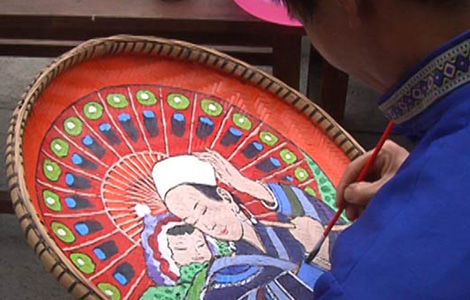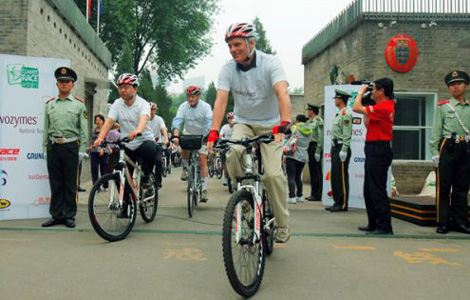Wartime brothels were wrong: Japanese veteran
Updated: 2013-05-23 15:49
(Agencies)
|
|||||||||||
SAGAMIHARA, Japan - When Masayoshi Matsumoto joined the Japanese army in 1943 and was sent to occupied China as a medic, he thought he was taking part in a righteous war to free Asia from the yoke of Western imperialism.
Seven decades later, the 91-year-old retired Christian pastor says it's his mission to speak out about the injustice of the war and the sufferings of women, mostly Asian and many Korean, forced to work in Japanese wartime military brothels.
"I feel like a war criminal. It is painful to speak of such things and I would rather cover it up. It is painful, but I must speak," the slender, white-haired Matsumoto said at his daughter's home about 40 km (25 miles) from Tokyo.
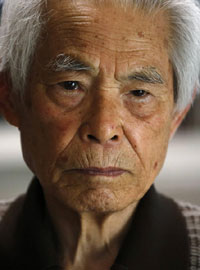 |
|
91-year-old former Japanese army medic Masayoshi Matsumoto listens to a question during an interview with Reuters at his daughter's house in Sagamihara, south of Tokyo May 22, 2013. Photo/Agencies] |
Outspoken Osaka Mayor Toru Hashimoto sparked a firestorm of criticism at home and abroad when he said last week that the military brothel system was "necessary" at the time and that Japan has been unfairly singled out for practices common among other militaries during wartime.
The remarks outraged China, where many suffered under Japan's military occupation, and South Koreans, where bitter memories of Japan's 1910-1945 colonial rule run deep.
They also sparked a backlash in Japan. Support for Hashimoto's right-leaning Japan Restoration Party, already sliding, has fallen further ahead of an upper house election just two months away and another small party has broken off ties with it.
As a medic stationed in Yu county in China's Shanxi province during the war, Matsumoto helped doctors examine a half dozen Korean women who provided sexual services for officers and non-commissioned officers, part of an effort to stem the spread of venereal disease among soldiers.
Whatever the rationale at the time, Matsumoto said, the system and the treatment of the women - known euphemistically as "comfort women" - were inexcusable.
"NO EXCUSE"
"It is not just Japan that did something wrong. But Japan also did something wrong ... Just because someone else is a thief, is it all right to be a thief? Because someone else kills people, is it all right to be a murderer? That is no excuse," Matsumoto said.
"The prime minister of Japan should apologise properly as the representative of the nation and compensate those who should be compensated."
Prime Minister Shinzo Abe caused controversy during his first 2006-2007 term by saying there was no proof that Japan's military had kidnapped women for the brothels. Such doubts are common among Japanese ultra-conservatives.
But Abe has sought to distance himself from Hashimoto's remarks, saying his government's stance is different.
"The stance of the government on this issue is that, as we stated previously, we are deeply pained when thinking of the women who experienced immeasurable pain and suffering. On this point, the Abe cabinet has the same position as prior cabinets," Chief Cabinet Secretary Yoshihide Suga told a news conference last week, although he declined direct comment on Hashimoto's remarks.
The issue has often frayed ties between Tokyo and Seoul. Japan says the matter of compensation was settled under a 1965 treaty establishing diplomatic ties. In 1995, Japan set up a fund to make payments to the women from private contributions, but South Korea says that was not official and so not enough.
Matsumoto said the women had no means of escape from the walled town where his military unit was headquartered and were in fact sex slaves. "No matter if they wanted to flee, there was no way to escape," he said.
Recalling the conditions in which the women lived, Matsumoto said soldiers lining up for sex would unfasten their leg wrappings and lower their trousers so as to waste no time when their turns came. "It was like they were going to the toilet," he said.
Only years later did Matsumoto come to believe his country had done something wrong. "We were taught that it was the mission of Japan, the mission of the Japanese people, to liberate Asian countries from European colonialism," he said.
"So we went to war gladly then. When I think of it now, it was monstrous, but I didn't think so then."
Related Stories
Protests arise over remarks on 'comfort women' 2013-05-15 16:38
Japan refuses to review stance on 'comfort women' 2013-05-07 18:39
Japan's remark on 'comfort women' irks China 2013-05-14 18:33
ROK urges Japan to resolve 'comfort women' issue 2012-03-01 15:52
Philippine 'comfort women' protest for justice 2010-11-08 17:45
New report on 'comfort women' published 2008-12-19 08:23
Today's Top News
China Railway Corp debuts bond issuances
China reassured about EU-US trade pact
Germany at odds with Brussels over solar tariffs
Huawei rejects EU dumping charges
China, Pakistan to bolster ties
Soldier hacked to death in London
Special envoy from DPRK arrives
Consumers' demand for luxuries growing
Hot Topics
Lunar probe , China growth forecasts, Emission rules get tougher, China seen through 'colored lens', International board,
Editor's Picks
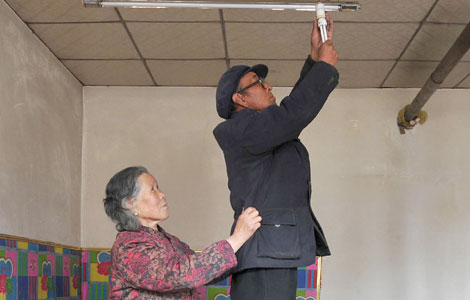
|
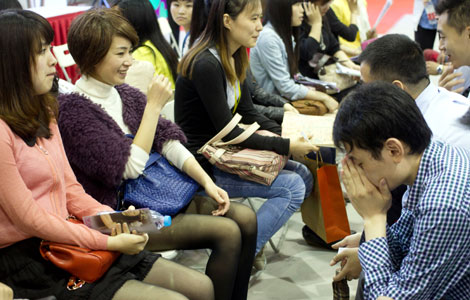
|

|
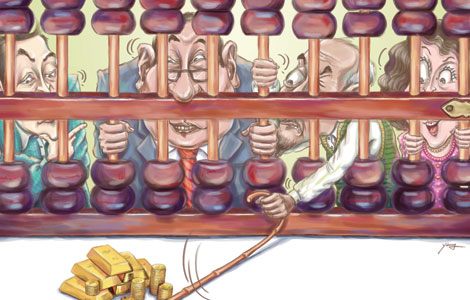
|

|

|
